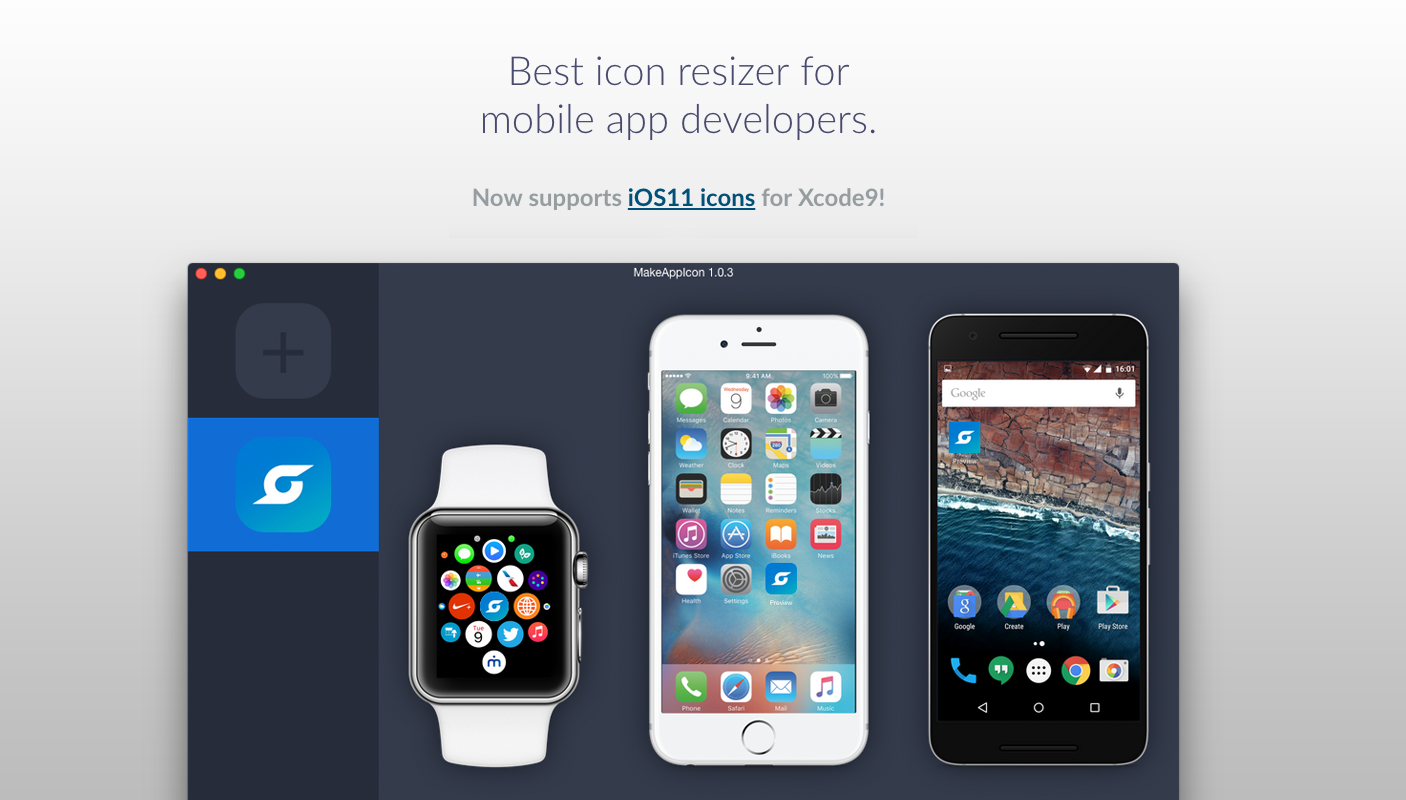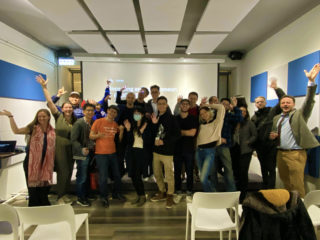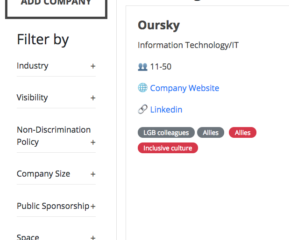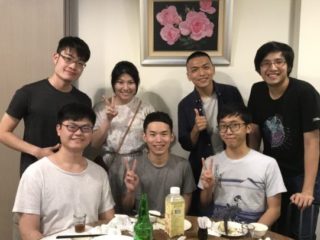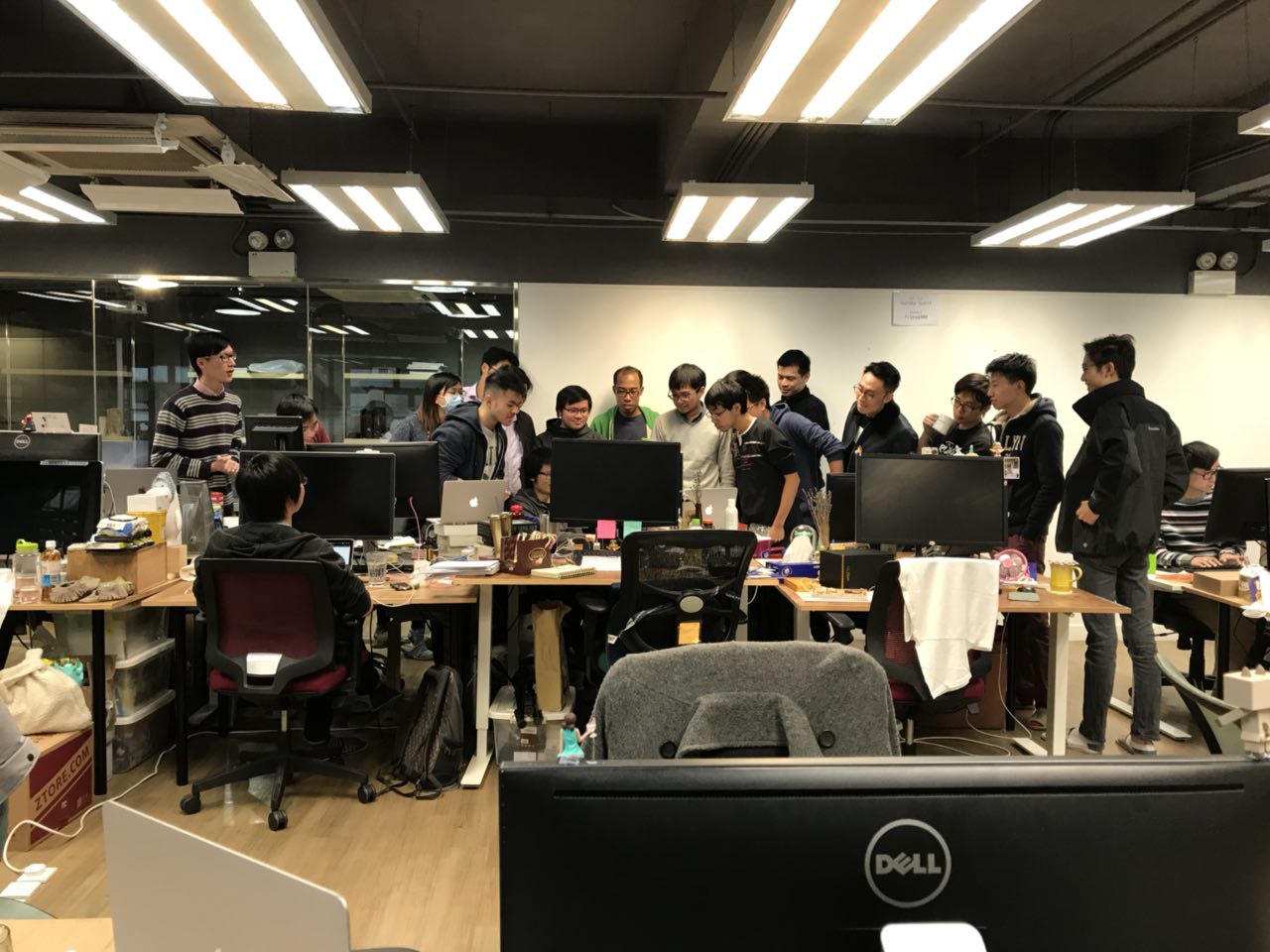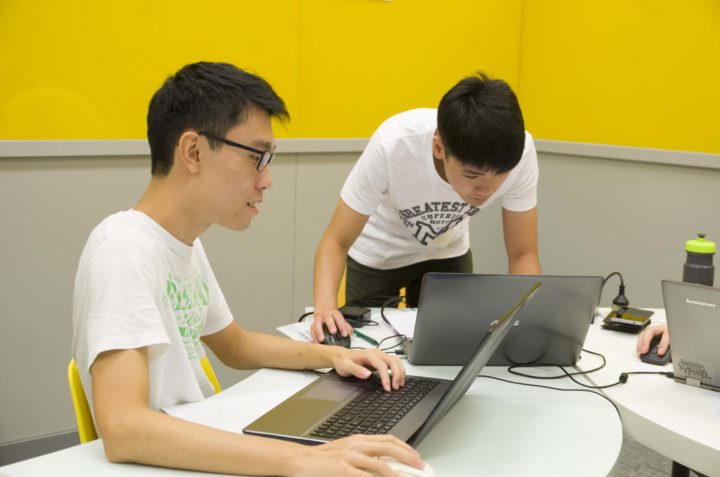
As an advocate for open data in Hong Kong, Oursky is honoured to be invited judge at the CSA x ISA Open Data Hackathon 2017 at the University of Hong Kong (HKU). The student leaders contact Oursky, and our CEO, Ben, approved sponsoring the event in order to help raise awareness about open data and it’s importance to the betterment of Hong Kong. Below is my event recap with some tools for quick prototyping.
The challenge

The exact was only revealed to participants (including us panelist judges) after we arrived on Saturday. Oursky has always advocated for socially progressive causes such as Creative Commons and open data, and we support grassroots events to help build a better developer community. I was happy to find the topic was open data for smart cities.
The 9 participating teams had 12 hours to decide on their topic and create a prototype with 3 cash prizes for the top three teams. There was no restriction on what open data they used or the type of user. Consumer apps to academic data analysis were fair game as long as there was a clear use case.
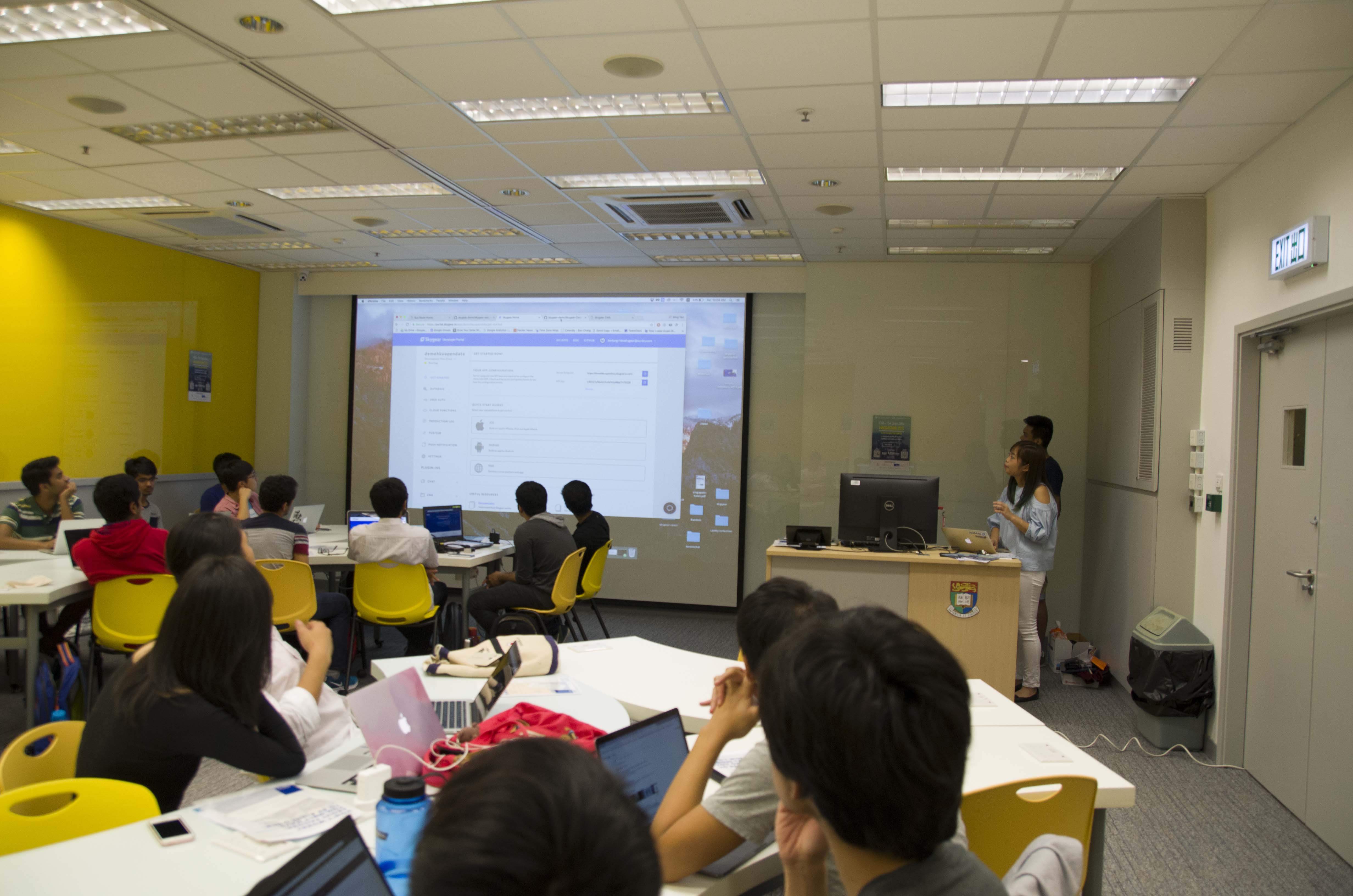
To help the teams, we prepared a cheat sheet with industry-grade tools for design, prototyping, and pitching based on a list from Startup Dash:
Brainstorm Better:
With flexible brainstorming templates, teams can collaborate by adding and modifying stickies and colours as ideas evolve.
Design Better:
Quickly pick colours schemes and layouts that work so that your team can focus more on developing features.
Prototype Better:
High fidelity prototypes help teams do usability testing because they can quickly show potential users. Development teams who are also able to click through a demo that has the look and feel of a real app helps them develop with the details in mind, such as fine-tuning transitions.
With these tools, teams can evolve their ideas into an interactive demo that other participants can give feedback for. I also did a demo of Skygear, my company’s open-source backend, which could help the teams with features such as a Cloud Database, CMS, authentication, chat, amongst other things. With a serverless backend, the teams could focus on the front-end development for iOS, Android, and web apps or on the algorithms for their datasets.
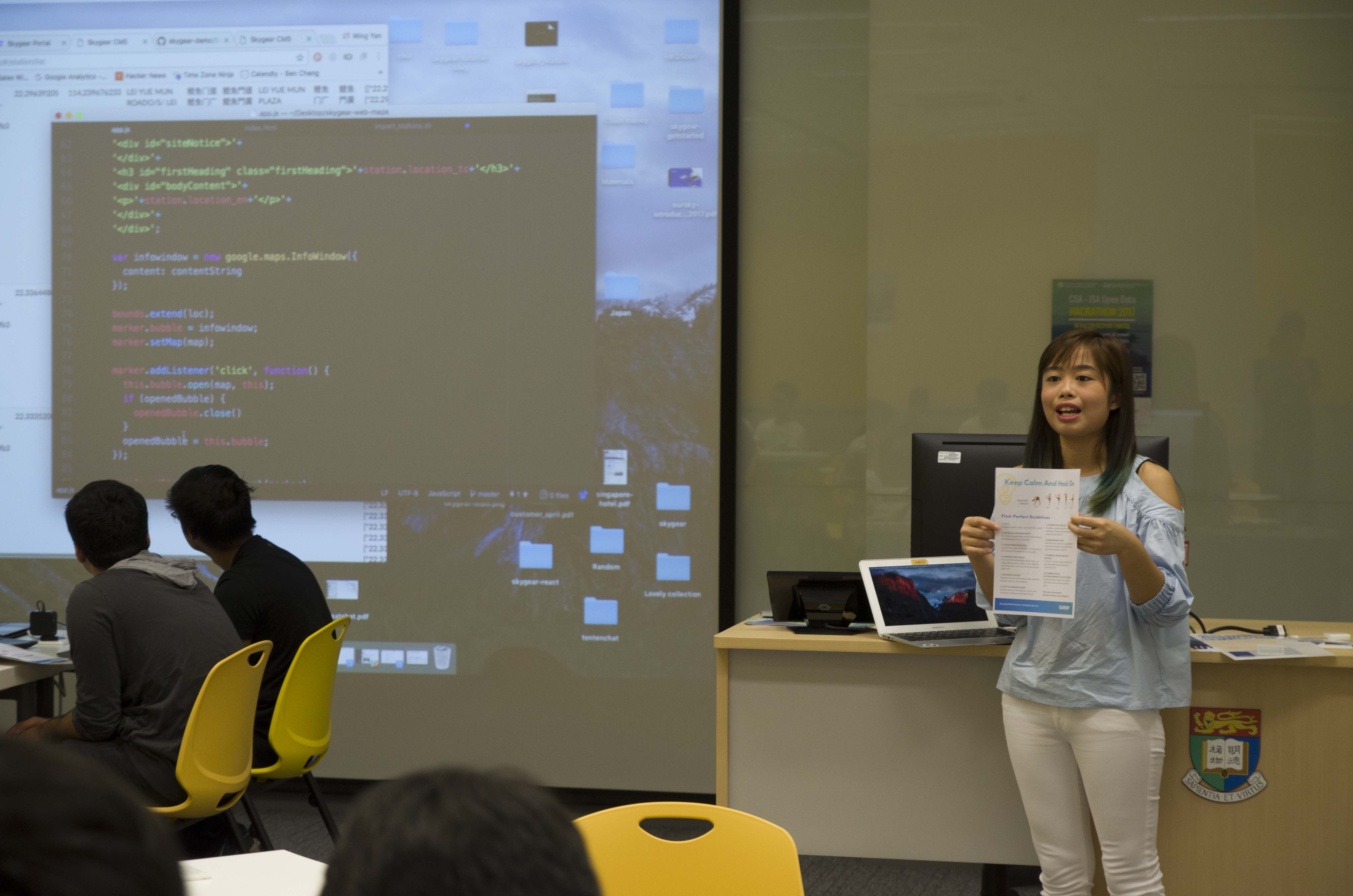
Event highlights
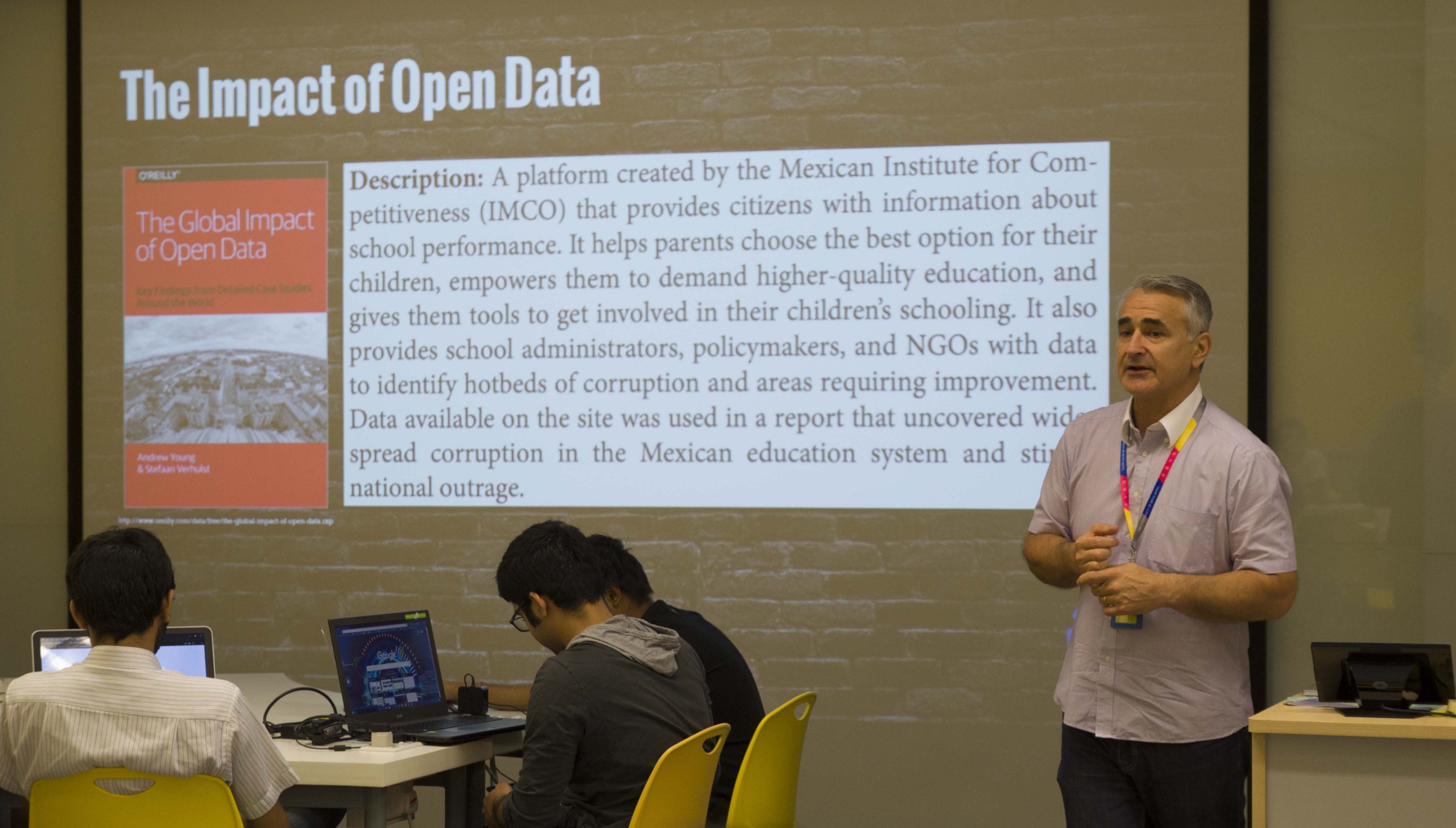
Professor Renato Iannella shared the importance of data in today’s world, citing that it is the world’s most valuable commodity. I also presented and judged at the event. Ben, our co-founder, also dropped by to support the students.
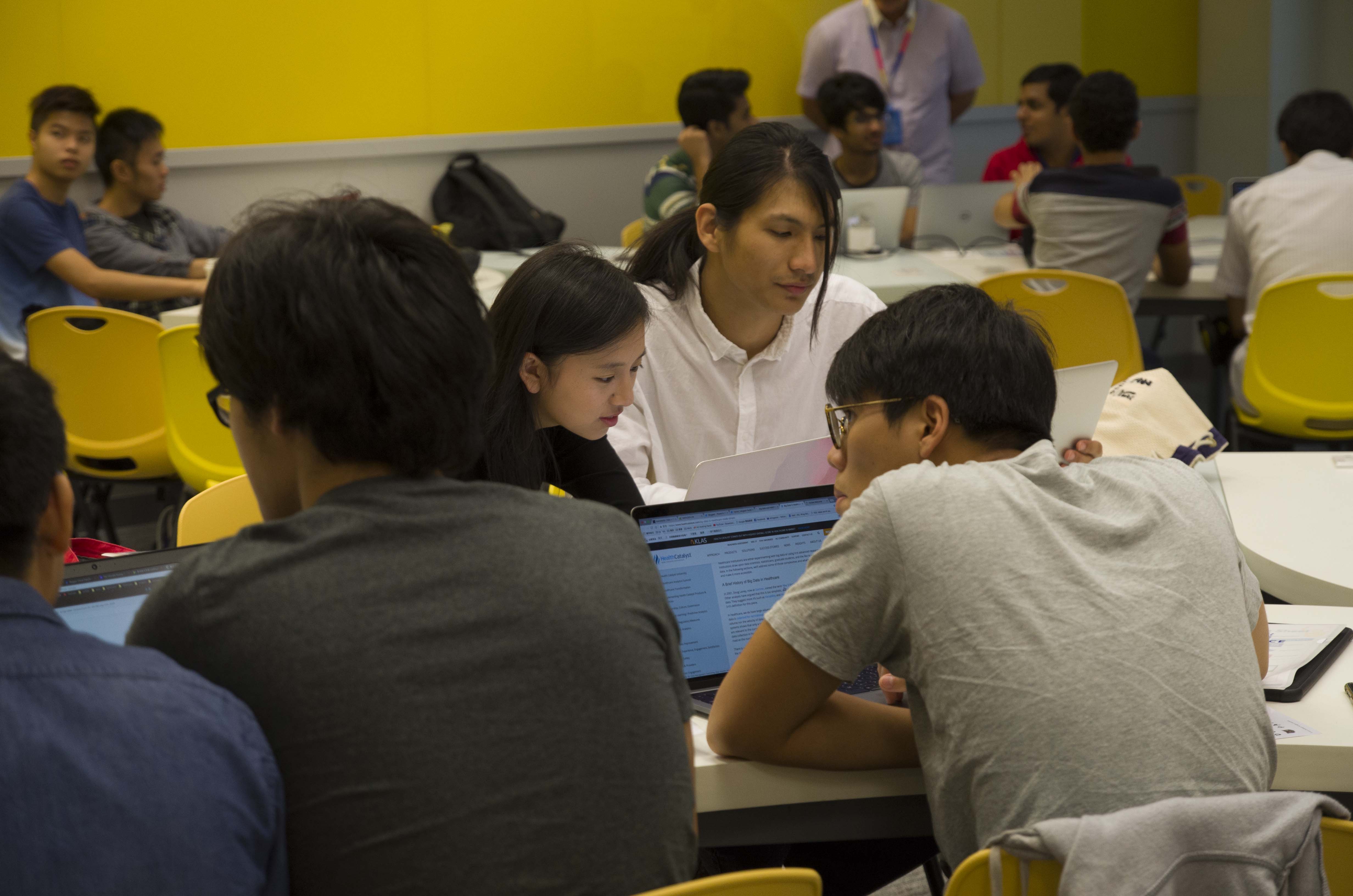
It was a gruelling day. The teams had to work out their target users, find available data sources, and compress their design phase. The teams focused on a variety of target users and their products included iOS and Android apps, an AI algorithm as well as mockups. Some stumbles were as simple as exporting XML to CSV files while others had bigger hurdles like not having enough time to finish an app’s front-end (that team opted to run their backend and show the raw data to demonstrate functionality in their presentation).
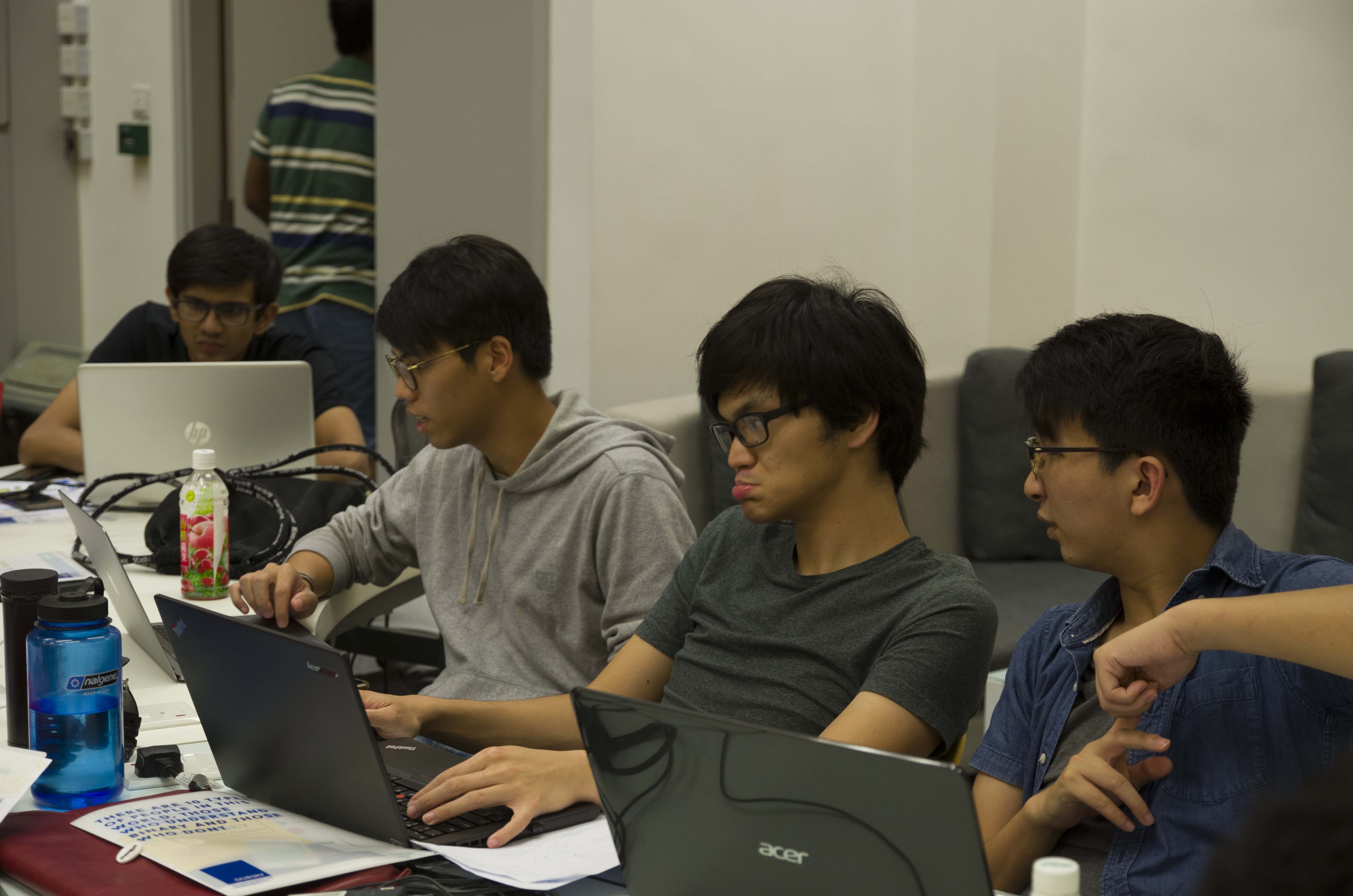
Results
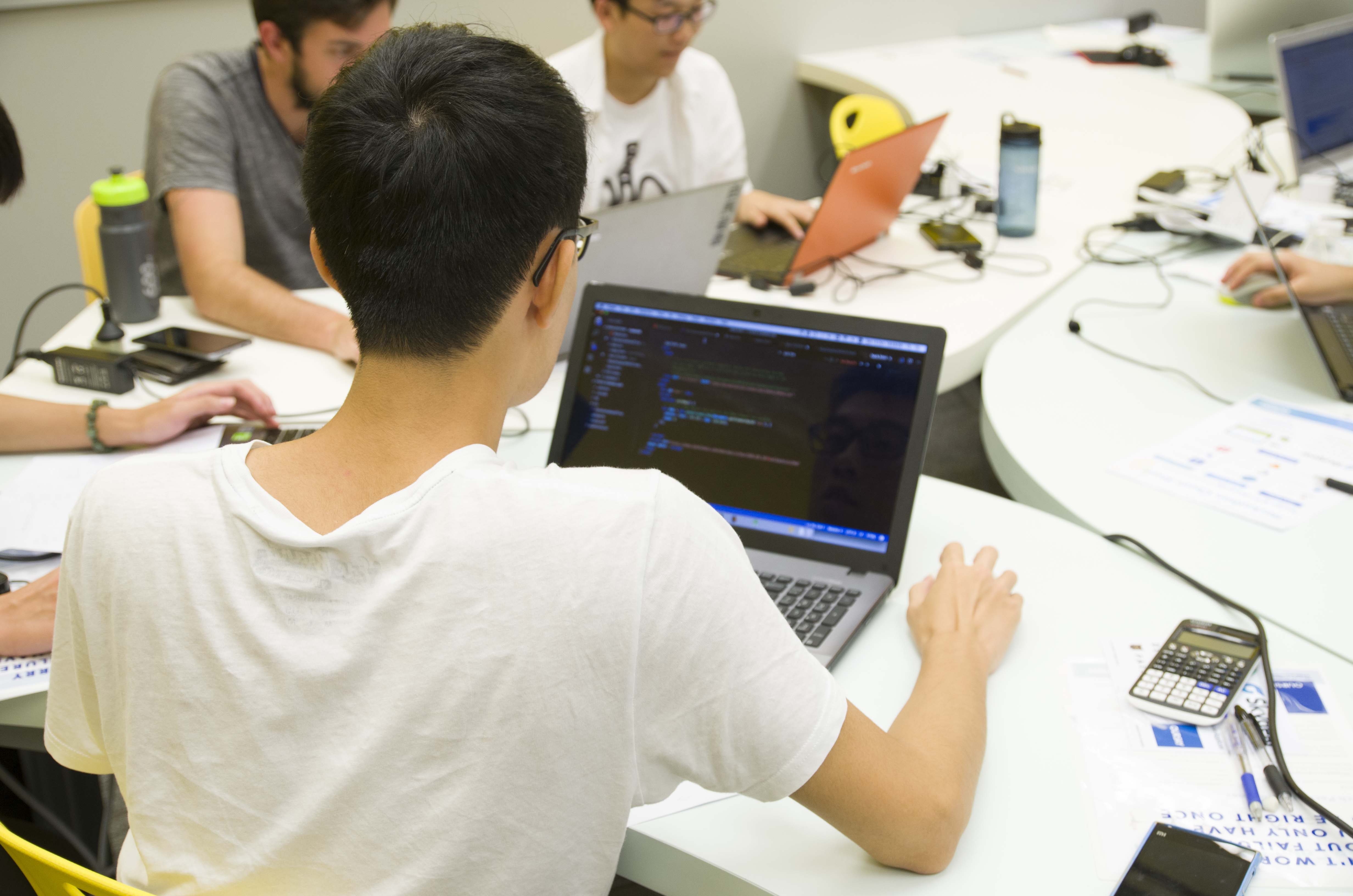
By evening, the teams had not only finished their prototypes and mockups, but had also prepared their pitches.
Teams were scored based on creativity, functionality, design, and presentation. Teams that used code to demonstrate a prototype were given more points, but there was no limitation on the technologies or platforms used.
And…drumroll
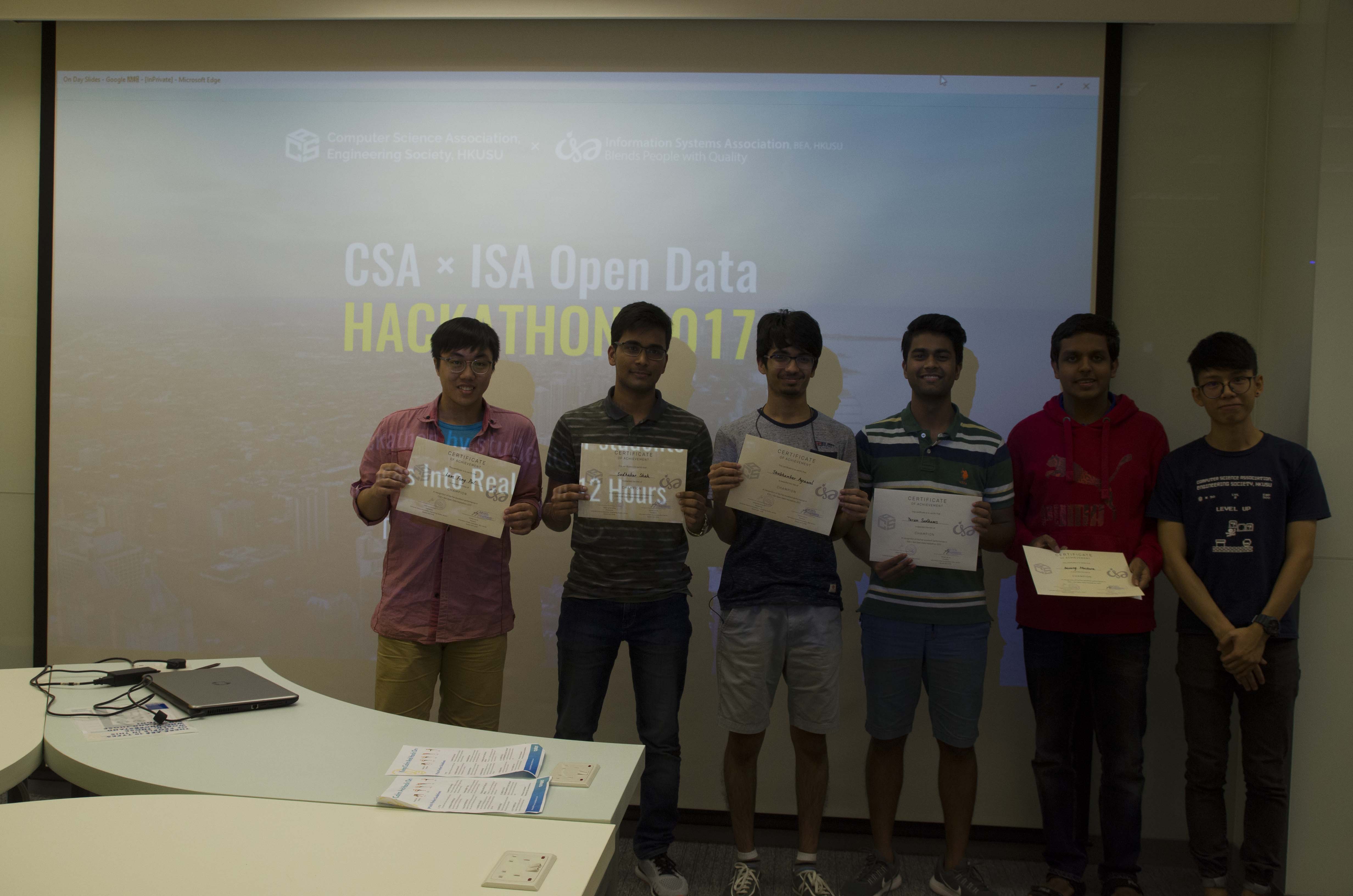
First place went to a team that integrated with your calendar to recommend the best and cheapest transit route. They app crawled Hong Kong’s bus and pricing data and also came with features. The app also acted as an assistant by making smart recommendations of nearby restaurants if a calendar activity was a scheduled meal.
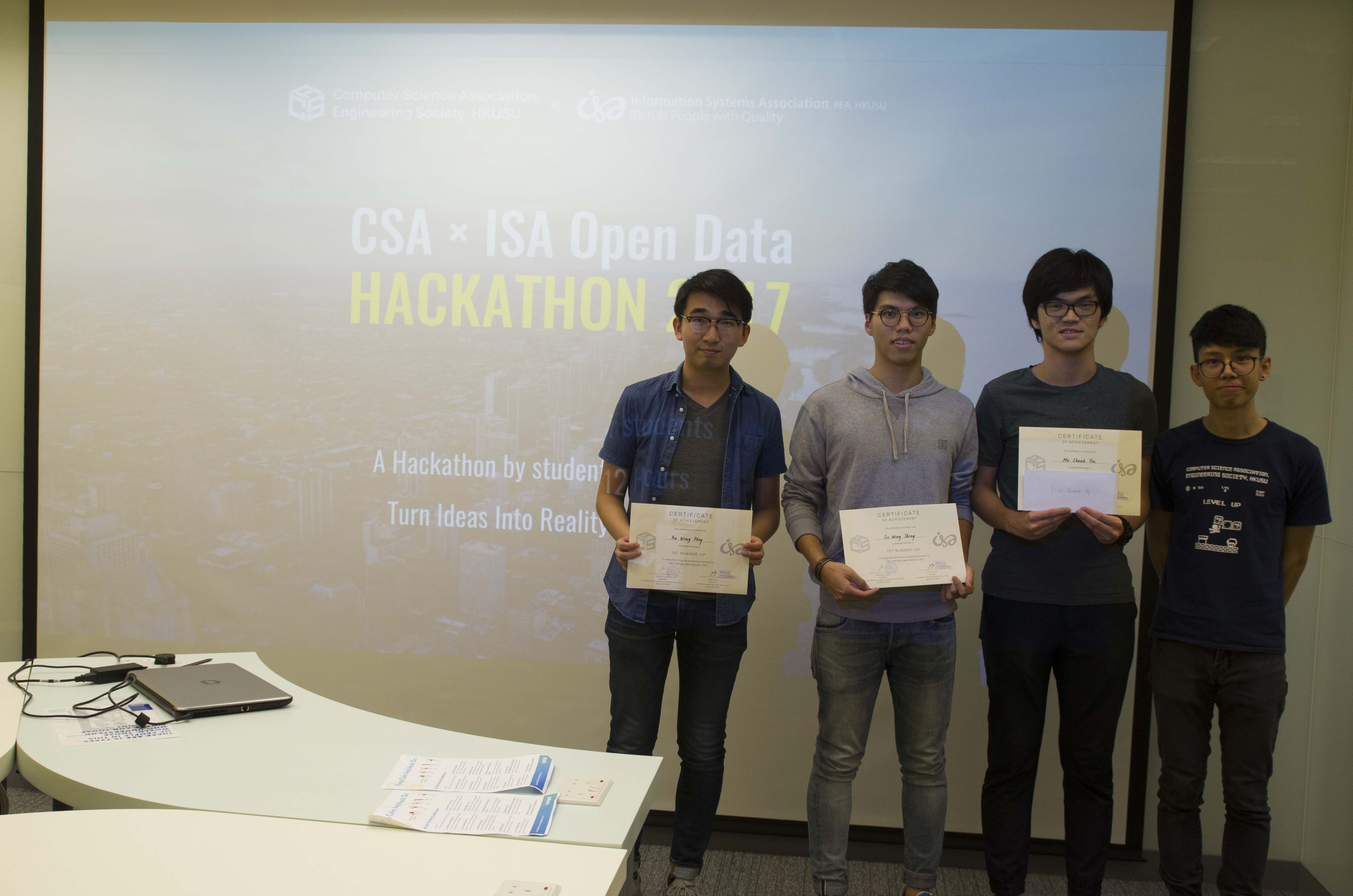
The first runner-up team focused on a growing market niche: electric cars. Because there was no consolidated map or list charging points, the team created an aggregated dataset more complete than the current government directories. The team’s clear narration of the problem and solution and their demo of their iOS app (made with Skygear‘s backend!) made an impression.
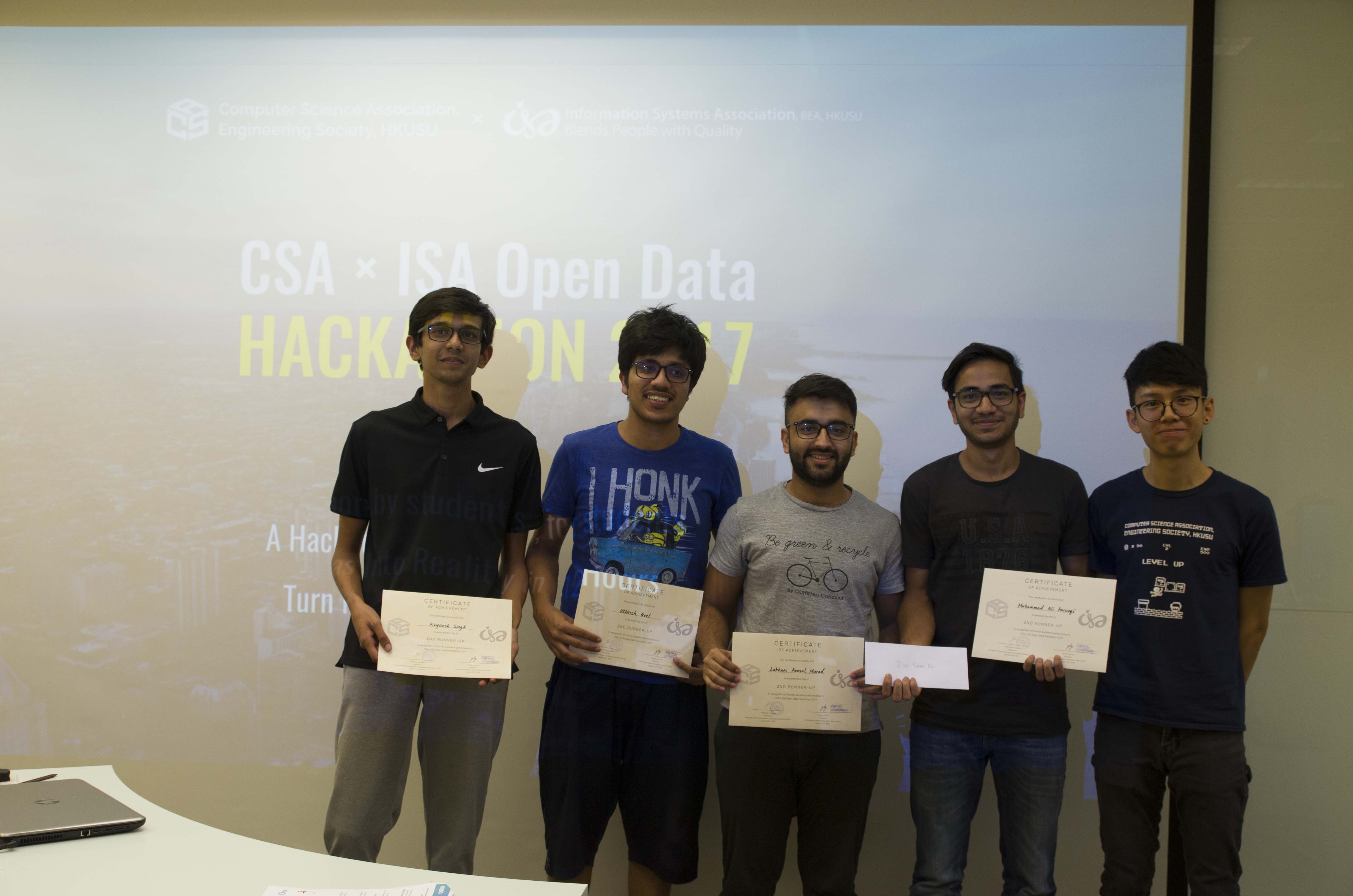
The 2nd runner-up team created the app “Save Me” for users in India. The geolocation Android app aggregates recent news data of reported crime incidents and alerts the user when they enter a specific area. The Delhi gang rape in 2012 brought the sexual assault issue to the forefront of international attention and this hackathon team also mentioned the persistent issue of rape in their presentation.
I was also representing Oursky as a judge and choosing amongst the teams was quite difficult. Some teams had technically impressive products without a clear use case, and I had to assess them based on the competition criteria. For example, one team used machine learning read faces for depression and explained the graph they generated when they applied their algorithim to a dataset.
I was also inspired by how the student teams used rapid development to quickly create working prototypes. They were able to identify problems that accessing data could quickly solve with very limited time. They applied their computer science and information systems skills to real-life cases, which cannot always be taken for granted! Bravo to everyone who participated!
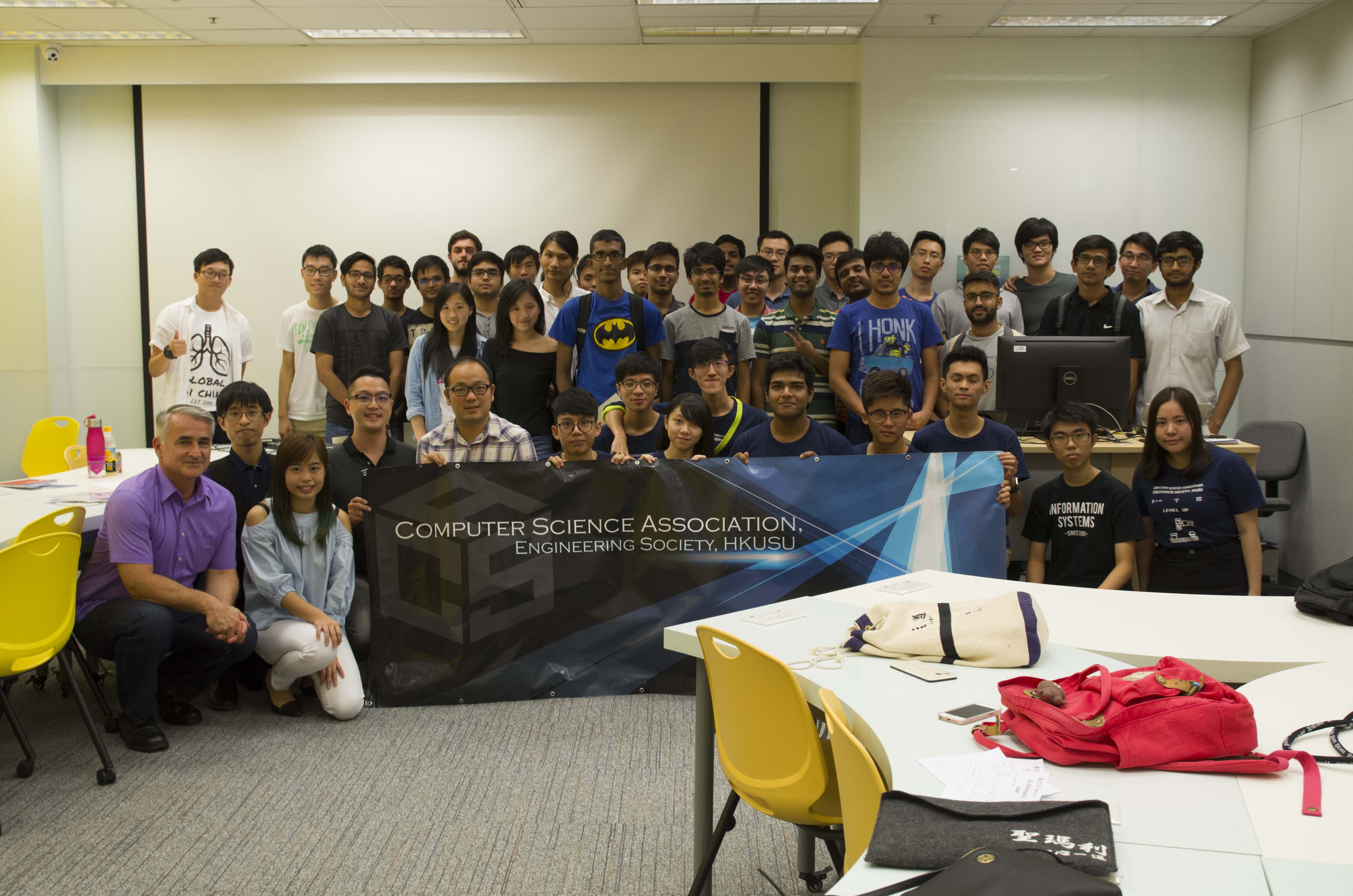
Once again, congratulations to the champions (Lam Fong Pui, Shubhankar Agrawal, Tarun Sudhams, Devang Maskara, Sudhakar Shah), 1st runner-up team (Au Wing Hing, So Wing Shin, Mo Cheuk Yin), and 2nd runner-up team (Utkarsh Goel, Divyansh Singh, Lakhani Amsal Murad, Muhammad Ali Farooqi).
And we thank the co-organizers Computer Science Association, Engineering Society, HKUSU and Information Systems Association BEA, HKUSU for inviting us to be a part of this event! We look forward to seeing what digital products you and your classmates will create with open data in Hong Kong!
You can find more event photos on Facebook
😻 At Oursky we’re all about helping brands and entrepreneurs make their ideas happen. Get in touch if you’re looking for a partner to help build your next digital product.


